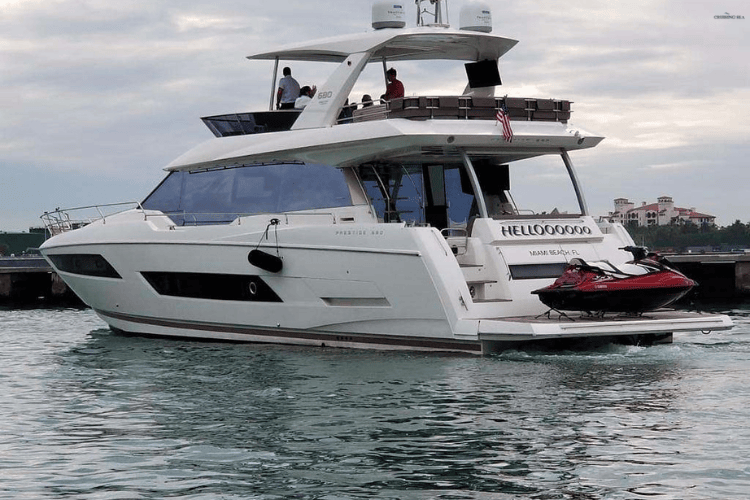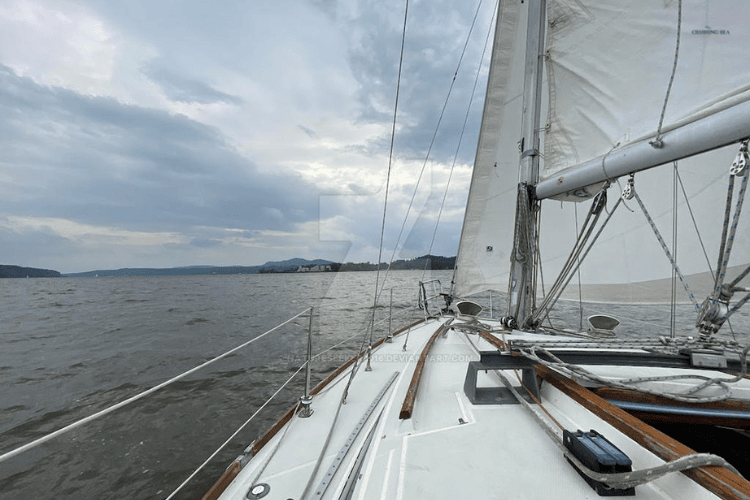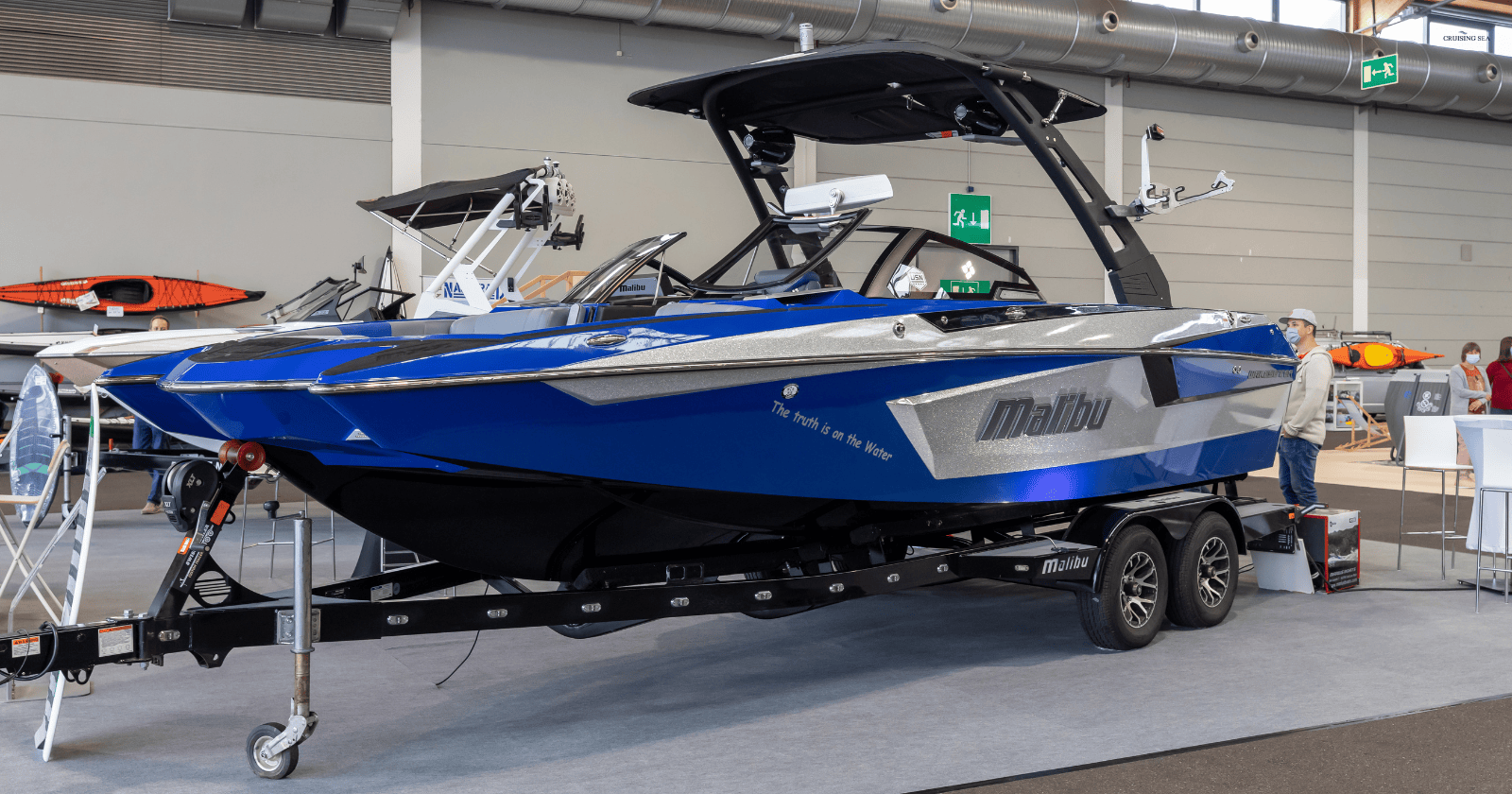Considering spending time on the water with friends and family and wondering if it’s better to rent or buy a boat? If so, you are in the right place! The choice you’ll make will significantly impact your finances, lifestyle, and leisure time.
So, let’s explore the pros and cons of renting vs. buying a boat, examining key factors such as cost, maintenance, flexibility, and long-term value.
By the end of this article, you’ll have a clearer understanding of which option aligns best with your needs, budget, and boating goals.
This post contains affiliate links. If you use these links to buy something, we may earn a commission. Thanks.”
Advantages & Disadvantages of Buying a Boat

Pros of Buying a Boat
Owning a boat gives you the freedom to go out on the water whenever you want. You don’t have to worry about rental availability or time restrictions. This means more spontaneous adventures and quality time with family and friends.
You can customize your boat to fit your specific needs and preferences. This allows you to create the perfect boating experience tailored just for you and your loved ones.
Over time, buying a boat can be more cost-effective than renting, especially if you use it frequently. You also have the potential to sell it later and recoup some of your investment.
Cons of Buying a Boat
The initial cost of buying a boat can be quite high. This includes not just the purchase price, but also equipment, safety gear, and possibly a trailer. It’s a significant financial commitment that might not be feasible for everyone.
Ongoing maintenance and storage costs can add up quickly. You’ll need to pay for regular upkeep, repairs, fuel, and a place to keep your boat when it’s not in use. These expenses can be substantial and continuous.
Boats depreciate in value over time, often faster than cars. This means you might not get back what you paid for it if you decide to sell it later. It’s important to consider this long-term financial aspect before making a purchase.
Types of Boats to Buy
There are lots of boats to choose from. Here are some popular options:
- Fishing boats: Great for anglers, with space for gear and fish finders
- Speedboats: Fast and fun for watersports like tubing, skiing and wakeboarding
- Pontoon boats: Roomy and stable, perfect for relaxing with friends
- Motorboats: Versatile boats good for cruising and day trips
Yachts are larger, luxury boats for longer trips. They’re pricey but offer home-like comforts on the water.
Think about how you’ll use your boat most often. This will help you pick the right type for your needs and budget.
Advantages & Disadvantages of Renting a Boat

Renting a boat can be a great way to enjoy time on the water without the commitment of ownership. It offers flexibility and convenience for those who want to try boating or only go out occasionally.
Pros of Renting a Boat
Renting a boat is often cheaper than buying one, especially if you don’t go boating often. You don’t have to worry about maintenance costs or storage fees. This can save you a lot of money in the long run.
Rental companies take care of all the upkeep, so you don’t have to deal with repairs or cleaning. This means more time for fun on the water and less time doing chores.
You can try different types of boats without committing to one. This is perfect if you’re not sure what kind of boat you like best. It’s also great for testing the waters before buying your own boat.
Cons of Renting a Boat
Rental boats might not always be in the best shape. Some companies don’t maintain their boats well, which could lead to breakdowns while you’re out on the water.
You might face limited availability, especially during peak seasons. This can make it hard to rent a boat when you want one.
Renting can be more expensive than owning one if you go boating very often. The costs can add up quickly if you rent frequently.
How to Rent a Boat
Renting a boat is easy. The first thing you need to do is look for reputable rental companies. There are many out here, but websites like GetMyBoat and Boatsetter offer a wide range of options in many locations and are reliable companies.
After you have chosen your boat rental company, check the rental terms carefully. Make sure you understand the pricing, insurance, and safety requirements.
It’s always best to Book early, especially in peak seasons. This will help ensure you get the boat you want.
Make sure to ask about the boat’s condition and what’s included in the rental. Some rentals come with equipment like life jackets and GPS.
You may want to get a brief lesson on how to operate the boat if you’re not experienced. Many rental companies offer this for free unless you rent a skippered or crewed boat.
Financial Considerations
Buying or renting a boat comes with different price ranges. So, let’s look at the money side of things to help you decide what’s best for you.
Cost Analysis of Renting vs. Buying
Renting a boat is generally cheaper, as you pay for the time you use it, which is great for occasional trips. Rental prices vary based on the boat type and location.
For instance, a small motorboat might cost $200-$500 per day, while a yacht can start at $1,000 per day and go much higher based on the size, features, and crew services.
Buying a boat is pricier at first. New boats can cost $20,000 to $50,000 or more depending on the type and size. But if you use it often, it will be well worth the investment.
You’ll need to think about how much you’ll actually use the boat to see if buying makes sense. However, owning a boat isn’t just about the purchase price. You’ll have ongoing costs too. Here’s what to consider:
- Maintenance: Engine tune-ups, hull cleaning, and repairs
- Storage: Winter storage and docking fees
- Insurance: Yearly premiums to protect your investment
- Fuel: Regular gas or diesel expenses
- Equipment: Life jackets, navigation tools, and safety gear
These costs can add up to thousands each year. For example, annual maintenance might be 10% of your boat’s value. Winter boat storage could cost $50 per foot of boat length or even more.
Remember, when you rent, these costs are usually covered by the rental company. When you buy, they’re all on you. Think about your budget and how often you’ll be able to make the best choice for your wallet.
Are Boat Clubs the Boater’s Sweet Spot?
When you join a boat club, you get the best of both worlds. You’ll have access to a diverse fleet of boats without the hassle of owning one yourself. It’s a great middle ground!
You’ll pay an upfront membership fee and then monthly dues, which often include fuel and maintenance costs. This means you can enjoy boating without worrying about repairs or upkeep.
Many clubs also offer boating education classes and on-the-water training, which is perfect if you’re new to boating or want to improve your skills.
However, keep in mind that you might face limited boat selection and potential blackout days during peak seasons.
You’ll need to plan ahead and book your trips in advance. Overall, a boat club can be a great option if you want regular access to boats without the full commitment of ownership.
Other Considerations
When deciding between renting and buying a boat, it’s crucial to think about safety and education. These factors can impact your boating experience and costs, too.
Boating Safety and Education
Taking a boating safety course is a smart move for all boaters. You’ll learn essential skills like navigation, emergency procedures, and local laws. Many states require these courses for boat owners and renters alike.
The great thing about renting is that it gives you a chance to try different boats and learn from experienced boaters. You can ask questions and get hands-on practice without a long-term commitment.
If you buy a boat, you’ll need to invest more time in learning about maintenance and safety gear. But you’ll have the freedom to practice and improve your skills whenever you want.
Frequently Asked Questions
Deciding between renting and buying a boat involves weighing costs, usage, and personal preferences. Here are some of the most asked questions by boater enthusiasts that might help you make the best decision for your needs.
What should first-time boat users consider when deciding between renting and buying?
Try renting different boats first to see what you like. This helps you learn about boating without a big commitment. Consider your budget, storage options, and how often you’ll go out. Renting lets you test the waters before diving into ownership.
Can boat club memberships be a cost-effective alternative to buying?
Boat clubs can be a great middle ground. You pay a membership fee for access to a fleet of boats. This can be cheaper than owning if you boat regularly but not enough to justify buying. You get variety without the hassles of maintenance or storage.
What unexpected costs can come with boat ownership?
Repairs can be pricey, especially for engines or electronics. Fuel costs vary and can be high. You might need to upgrade equipment or pay for unexpected marina fees. Don’t forget about winterizing costs in colder areas. These surprise expenses can add up quickly.
When is the ideal time of year to get a good deal on boat purchases?
Fall and winter are often the best times to buy. Dealers want to clear out inventory before the new year. You might find good deals at boat shows in the off-season. Be ready to negotiate and compare prices from different sellers to get the best deal.
Final Words!
To conclude, both renting and buying a boat have their merits and drawbacks. Your choice ultimately depends on your personal needs, budget, and boating goals.
Consider starting with short-term rentals or joining a boat club to test the waters. These options allow you to explore different types of boats and boating experiences without a long-term commitment.
As you become more familiar with your preferences, you’ll be better equipped to make an informed decision about ownership.
Want more tips?
Subscribe to Cruising Sea newsletter to receive every two-week the latest post straight to your inbox!

Daniella has been passionate about travel, the sea, and nature for many years. As a child, she frequently traveled throughout the Mediterranean and continued with her journeys throughout her adult life.
Her experiences have created the desire within her to share her love for traveling with other passionate and adventurers who want to discover beautiful horizons and new cultures.

